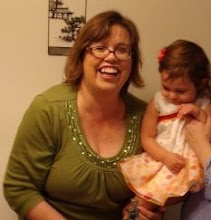My favorite part of Sunday School and church as a child was always the powerful stories of the Bible, especially those in the Old Testament. I base my strong faith now on the beauty and magic, yes, MAGIC of those ancient words. Even as a progressive Christian thinker these days, who believes that most of those ancient stories are just that, stories, I still see and feel the power of them to tell truth to the listener.
It is no surprise that as a homeschool mother, heavily invested in story forms, would develop a learning curriculum for her child and friends that is essentially centered in story and it's power to teach everything under the sun. Because I believe that it can do just that very thing.
What stories have acquired a life force of their own, that transcends varying belief systems to still hold value as a learning tool for all children and adults? The list is truly endless. We will never run out of stories that speak to us, that inform and enlighten us.
Yesterday we (Americans and Irish) shared a story of living, the story that celebrates the life of an ancient teacher who transformed an entire culture. We can argue about the merit of his transformation as we see recent incidents of non-secular violence arise again in Ireland, or as we question the validity of religions to come in and "take over" a culture. Pros and cons everywhere in that tale. But we can't argue with the power of the stories of gaelic superstitions, leprachaun and fairy folk, adventures of St. Patrick's missionary travels, and the lilt and voice of Irish legend spilling across the globe to our shores from that emerald Isle.
What stories are you choosing to use in your homeschool and if you're not, why not? Perhaps you have decided that a proscribed list of stories (curriculum) is needed and you have abandoned the role of storyteller in your children's life. I challenge you to rethink the power of story and how you use it in your homeschool environment.
Some stories reach across millinium and generations and hold true to their core. Some stories, however, are yours to share. They tell your child about your experience, your parent's experience, their grandparents and great grandparents. They bring history home in a way that a prescribed curriculum can never do.
It is no wonder that in nearly every culture the storyteller also plays the role of teacher. That role has been granted them by the instinctive understanding that real learning takes place when both our minds and hearts are engaged in the process. We remember those things that affect us deeply and nothing can be more powerful than a true story.
Storytelling has the power to teach us all to feel deeply and think clearly. Oral stories pass on our family's values, our culture's traditions and social mores. Hearing such stories allows the listener to focus their attention, to gain critical skills in thinking and processing information.
I remember reading or hearing this thought. In an African village, a wise and venerable teacher/storyteller came into a village and the children gathered around with noise, much talking, laughing and delight in his presence. They knew that he had a story to tell them. He stood and looked around at them and said..You are not ready yet. I will return when you are ready to listen to my story. This process repeated several times over several days, until finally as the storyteller came into the village, the children quickly came to him and gathering quietly around, they sat upon the ground before him, silent and waiting. And he said. "Ahh..I see now that you are ready" and he proceeded to share his tales.
Your child might not know that he is ready, but in fact, if you take the time to sit and share a story, of your own or one from the vast library of cultural tales available to all of us, he will listen. And he/she will learn. There is another ancient myth called the Sage's Gift from Baghdad. I shall write of this story in my next post for you to share with your student or for your own enjoyment.
You too can be a sage. It isn't as hard as you might think. The stories are all around you, they are your unique gift to your child. Those stories about your first time swimming in the ocean, or grandpa's gift to grandma on their wedding day, or what happened the first day you brought your child home from the hospital as a newborn baby. Remember your stories, and tell them to your child. Turn off the television and sit cuddled together on the comfy couch of storytelling. Gather them in your arms and let the stories begin!
Your child will find the language of words. Words that will spark their imaginations, clarify their thinking, remember their history, and engage their hearts. An engaged student is one who is ready to listen, ready to learn, and eager to be active in those processes. Tell a story..today.
Subscribe to:
Post Comments (Atom)




3 comments:
LOL Elf and Emperor are constantly bugging me to let them do stories on their blogs. Here's one:
http://elfnetc.blogspot.com/2009/02/revelation-201-3.html
Writing stories are great and the natural outcome of a child who has been told stories. They want to create their own. But make sure they get to try and "tell" them. Have a storytelling afternoon where everyone gets a chance to "tell" their own story to everyone else. And on that day, make sure Mom has a great one to share!
That'll be fun. :]!
Post a Comment